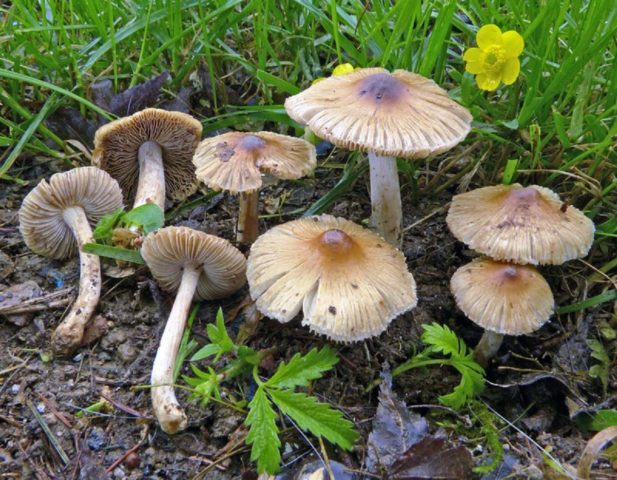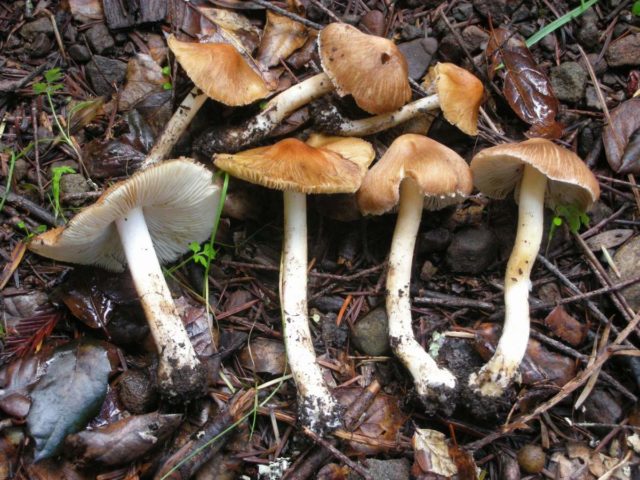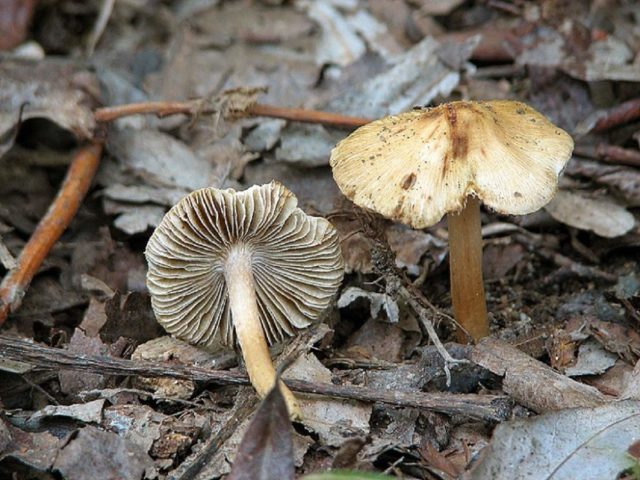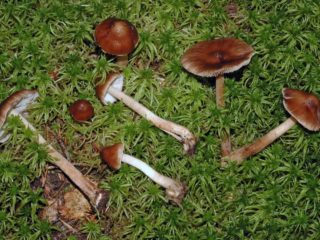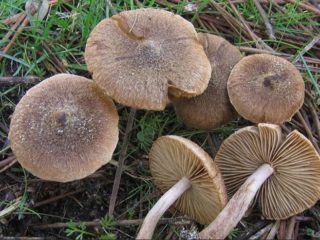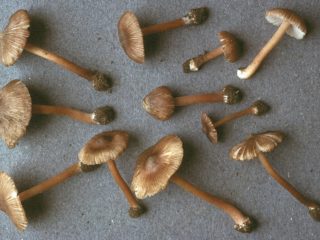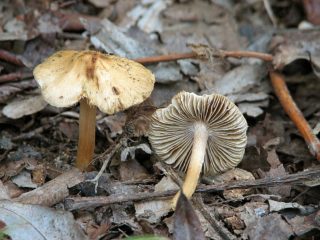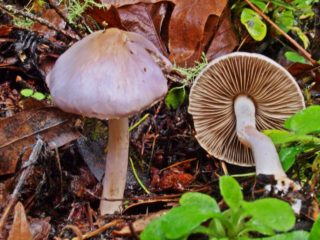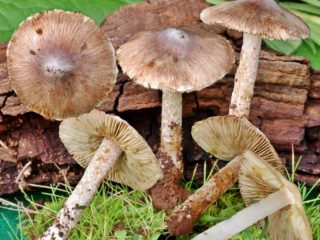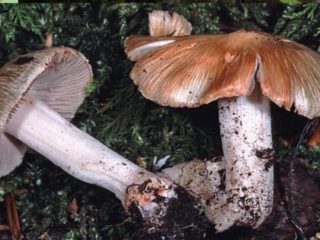Content
There are about 150 varieties of mushrooms of the Volokonnitsev family, of which about 100 species can be found in the forests of our country. This number includes Fractured fiber, which is also called Conical or fibrous fiber.
What does a fractured fiber look like?
This species is a small plastic mushroom with the following characteristics:
- The hat changes shape depending on the age of the specimen. For example, in a young fibula, a fissured cap is pointed-conical with edges curled inward, then it becomes practically prostrate with a sharp tubercle in the center. The old mushroom gives out fragile and severely cracked edges. The size of the cap in diameter varies from 3 to 7 cm. The surface is pleasant to the touch and smooth in dry weather, and becomes slippery during heavy rain. The color is yellow-golden or brown with a darker spot in the center.
- On the inner side of the cap there are frequent plates adhered to the leg. Their color changes with age. So, in young specimens they are white-yellowish, and in adults they are greenish-brown.
- Spores are elliptical, dirty yellowish in color.
- The fissured fiber has a straight, thin and smooth stem, the length of which varies from 4 to 11 cm, and the width is not more than 1 cm. In young fruiting bodies, it is pure white, and becomes yellowish with age.
- The pulp is white, thin and fragile. An unpleasant odor emanates from it.
Where the fissured fiber grows
These representatives of the genus Fiber prefer deciduous, mixed and coniferous forests, form mycorrhiza with hard tree species. Quite often, the mushroom is found in parks, in clearings, along forest paths and roads. Widely distributed in Russia, North Africa, South and North America. Fertilized soil is one of the main conditions for their development. The optimal time for fruiting is summer and autumn. As a rule, they grow in small groups, very rarely occur singly.
Is it possible to eat fissured fiber
Fractured fiber belongs to the category of poisonous mushrooms. It contains a potent poison muscarine, which is very dangerous to human health and life.
Poisoning symptoms
It is forbidden to eat this specimen, since the mushroom is poisonous and can cause severe stomach poisoning. If this does happen, a person may feel the first symptoms after 2 hours, namely:
- increased sweating;
- diarrhea and vomiting;
- deterioration of vision;
- weakening of the heart rate.
In the absence of emergency measures, a person will face breathing problems and pulmonary edema, which will subsequently lead to death.
First aid for poisoning
After consuming fissured fiber, it is necessary to eliminate the poison from the body as soon as possible and reduce its concentration in the blood. To do this, a procedure should be carried out, which consists in taking adsorbents and washing the stomach. When first aid is provided, the victim must be taken to the hospital without delay, where he will receive a full course of treatment.
Conclusion
Fractured fiber is a poisonous mushroom, the consequences of use can be dire. Therefore, when collecting gifts from the forest, it is important for a mushroom picker to monitor what he puts in his basket. It is important to remember that even contact with edible mushrooms can cause poisoning in a person.
